The rise of drone technology has opened new frontiers in innovation, creativity, and industry. From delivering packages to capturing breathtaking aerial footage, drones are transforming the way we interact with the world. But with this rapid growth comes a pressing need for regulation and accountability—and that’s where Remote ID steps in.
Taz Little, co-founder of AINautics, a leader in drone education and training based right here in Columbia, South Carolina, explains: “The average licensed drone pilot you find out there is using drones for good. We know that despite these sightings and stuff, the majority of drones that you will see you don’t have anything to worry about. And they should be following all the FAA rules and regulations as far as Remote ID.”
What Is a Remote ID?
Remote ID is essentially a digital license plate for drones. It’s a technology that allows authorities and others to identify drones in real time. This identification includes critical data such as the drone’s unique ID number, location, and flight information, as well as the location of the operator. This transparency is crucial for maintaining order in increasingly crowded airspaces.
How Does Remote ID Work?
Drones equipped with Remote ID broadcast flight information using radio frequency or internet connectivity. This data can be received by compatible devices or applications, allowing authorized individuals to:
- Identify the drone’s registration details.
- Track its location and altitude.
- Determine the location of the pilot.
This system ensures that anyone flying a drone can be held accountable for their actions, fostering safer skies for everyone.
Why Is Remote ID Important?
Remote ID plays a pivotal role in:
- Promoting Safety: By identifying drones and their operators, authorities can prevent collisions, mitigate risks to property and people, and ensure compliance with airspace regulations.
- Deterring Malicious Activities: Remote ID makes it easier to trace unauthorized or dangerous drone operations, discouraging misuse.
- Building Public Trust: With transparency comes confidence. When the public knows drones are traceable, it alleviates concerns about privacy and security.
Taz Little reinforces this point: “Most drones are used for good. Remote ID helps ensure pilots are responsible and follow FAA rules, creating a safer environment for everyone.”
AINautics: Leading the Charge in Drone Responsibility
AINautics isn’t just a national leader in drone education; it’s a local success story. Recently recognized as the 2024 Small Business of the Year by the Columbia Chamber of Commerce, AINautics has made significant contributions to the Midlands. From providing cutting-edge training to supporting local businesses with aerial solutions, AINautics exemplifies innovation and community impact.
Through our comprehensive training programs, we equip pilots with the knowledge and skills to operate drones responsibly and within FAA guidelines.
Our training includes:
- Understanding and implementing Remote ID requirements.
- Emphasizing safety and ethical drone use.
- Preparing for FAA certifications to ensure compliance and accountability.
The Bigger Picture: Drones for Good
While sensational headlines often highlight concerns about “mystery drones,” it’s essential to remember that most drones serve a positive purpose. They’re being used to deliver medical supplies, aid in disaster relief, survey infrastructure, and more. Remote ID ensures these beneficial activities can continue in a safe and regulated manner.
Local Impact, Global Vision
As a proud resident of South Carolina, AINautics is dedicated to fostering responsible drone usage not just locally, but nationwide. Our recent recognition as Small Business of the Year underscores our commitment to excellence and innovation in the drone industry. By combining advanced technology with a strong sense of drone safety, drone education, and compliance to federal regulations we’re helping to shape the future of drones.
Final Thoughts
Drone education and drone safety awareness are essential steps toward creating a more informed public regarding the drone industry. From delivering life-saving medical supplies in remote areas to supporting disaster relief efforts, drones are transforming industries and improving lives. As AINautics co-founder Taz Little says, “Remote ID is about ensuring drones are used for good and that licensed pilots adhere to FAA rules and regulation.”
At AINautics, we’re proud to be at the forefront of responsible drone operations, empowering pilots to embrace innovation while prioritizing safety. To learn more about our training programs and how we’re advancing the drone industry, contact us.
Together, we can keep the skies safe and a brighter future for drones.
